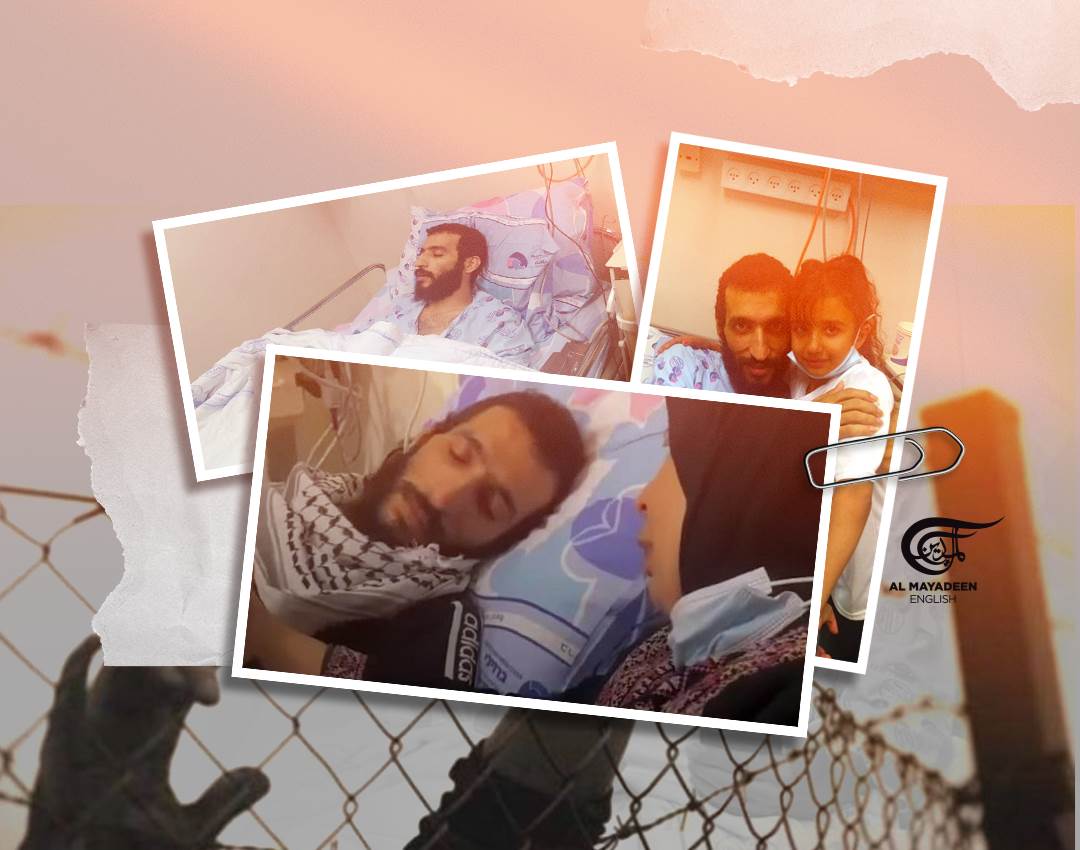Handcuffed to Hospital Bed, Prisoner Al-Fasfous Faces Risk of Sudden Death
Prisoner Kayed al-Fasfous, who is on an open hunger strike, is facing the risk of sudden death as his health condition deteriorates rapidly.
-

Prisoner Al-Fasfous is facing the risk of sudden death
The Commission for Detainees and Ex-Detainees' Affairs warned today that the health condition of the hunger-striking prisoner, Kayed al-Fasfous, is deteriorating rapidly and that it has reached a very critical and dangerous stage that may lead to his martyrdom at any moment.
The Commission stated that Prisoner al-Fasfous is handcuffed to his bed at the Israeli Barzilai hospital and that he refuses to undergo any medical examinations except in a Palestinian hospital.
Al Mayadeen correspondent reported earlier that 3 security personnel from the Israeli prison authorities are guarding al-Fasfous, and denying him the right to counsel despite being in such a condition.
Khaled al-Fasfous, Kayed’s brother, said in an interview for Al Mayadeen that there is no serious move to save the lives of the Palestinian prisoners on hunger strike," adding that the two captives, Kayed al-Fasfous and Miqdad al-Qawasmi, "can barely endure a few days."
The six #Palestinian prisoners continue their open hunger strike in protest of the Israeli administrative detention policy.#FreeThemAll #Palestine pic.twitter.com/bFCjpB6tZv
— Al Mayadeen English (@MayadeenEnglish) November 2, 2021
He continued to say that Kayed's condition is very critical, and he is in a state of clinical death. His lawyer also reported that Kayed cannot feel his feet, and is suffering from a high temperature, with doctors warning that he may face sudden death.
The Palestinian Prisoners Club also announced that the Israeli occupation intelligence transferred Prisoner Alaa Al-Araj, who has been on hunger strike for 78 days, for an investigation in the Ramla prison clinic, despite his health condition.
In an interview for Al Mayadeen, the director of the legal department at the Palestinian Prisoners Club, Jawad Boulos, confirmed that the conditions of the hunger strikers in the Israeli occupation prisons are "very dangerous," noting that Prisoner Shadi Abu-Aker can no longer distinguish the people around him as a result of bad eyesight.
The six Palestinian prisoners continue their open hunger strike in protest of the Israeli administrative detention policy, amid deteriorating health conditions threatening their lives.
It is worth noting that Shadi Abu-Akar ended his hunger strike after an Israeli decision set an end date to his administrative detention, a non-renewable 6 months period, meaning he will be free in April of 2022, Al Mayadeen's correspondent reported.

 2 Min Read
2 Min Read








